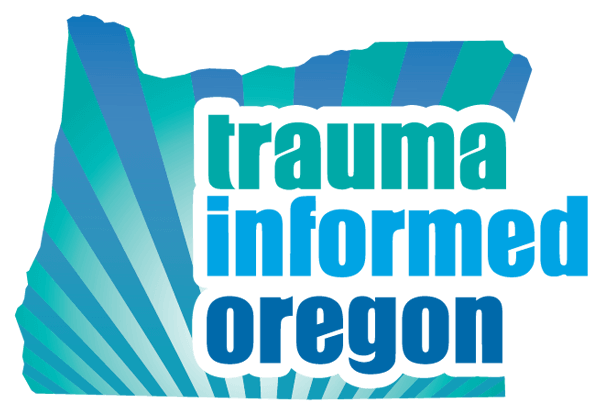Blog
 Peer Support and Mutual Self-Help as Healing Antidote
Peer Support and Mutual Self-Help as Healing Antidote

June 11, 2020
From Ana Hristić, MA, LCSW, Director of Education & Workforce Strategies, Trauma Informed Oregon
A critical aspect of trauma informed care is peer support and mutual self-help, as it is one healing antidote to beliefs and structures that perpetuate oppression.
Historically, and currently, our systems (including social service systems) are built on hierarchy and power—student/teacher, teacher/administrator, lawyer/judge, nurse/doctor, doctor/surgeon, etc. In different environments, different social constructs are considered in establishing this hierarchy, including age, education, job title, socio economic status, etc. It has been evident that since the conception of the institution of the United States, power hierarchy has been defined by racist policy. The belief of the superiority of white (male, heterosexual, cisgender, wealthy, able bodied) people over all others, has been the bedrock of the formation of the United States, and has been perpetuated through silent contracts of hierarchy embodied in our policies.
What does this have to do with trauma? We know that one way that trauma happens is with lack of consent, and not all have consented to be part of this silent contract of a racist culture. We know that power-over is a pillar of abusive dynamics, and that marginalized access to equitable resources and opportunity has led to racism being a public health crisis. We know that silencing peer support and mutual self-help, perpetuate the operational belief of one story and only one truth, and ultimately deny that any abuse or trauma has occurred.
What we also know—thanks to the voice of lived experience—is that peer support and mutual self-help is profoundly empowering, healing, and enriching, not only on the individual level but also on the operational/systemic level. Creating opportunity and policy for peer support to exist in all environments is to create antiracist policy, thus dismantling normalized systems of hierarchy/superiority currently alive in our institutions, systems, and communities.
The trauma informed care (TIC) principle of peer support challenges us to uplift practices and policies that honor that:
- Everyone has a role to play in healing and liberation.
- Consent and shared power are crucial to TIC.
- Solidarity and fellowship are key to dismantling power structures that contribute to and sustain oppression.
- Voice of lived experience matters, both for informing systems, healing, and reclaiming of ones’ story.
Training & Workforce Wellness Updates:
- Several community members have contributed to the ongoing vlogs, including on topics related to Diversity, Equity, and Inclusion and Incident Response, Culture as Healer, and Trauma Informed Communication.
- 33 people completed the April 2020 Train the Trainer!!
- Watch a brief video debriefing the Train the Trainer experience and check out Hosting a Virtual Meeting Using Trauma Informed Principles.
